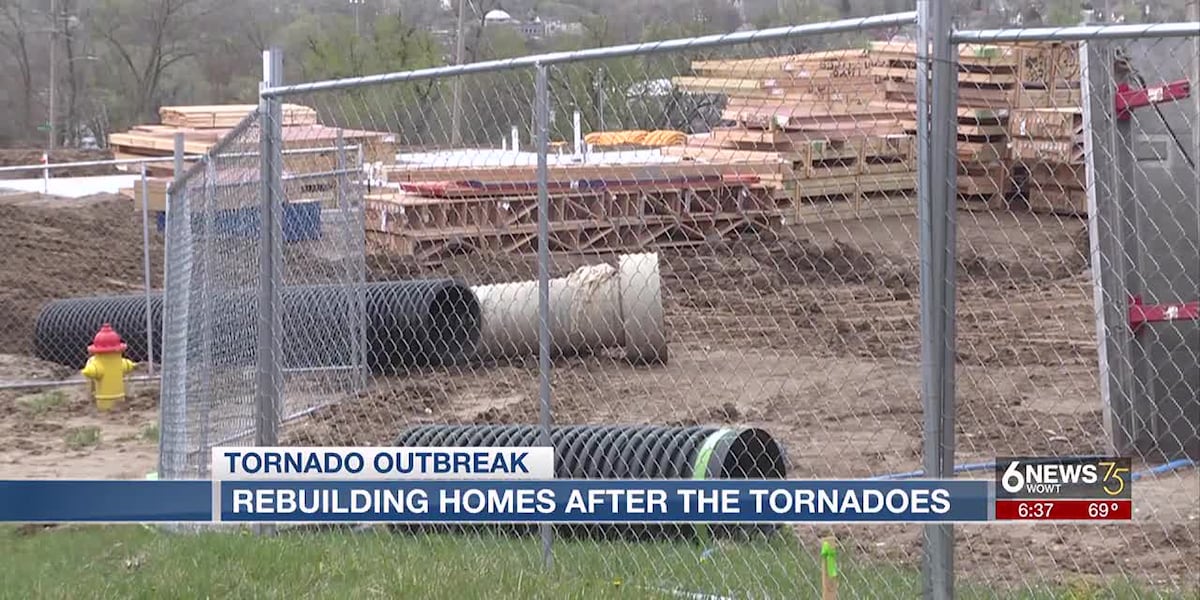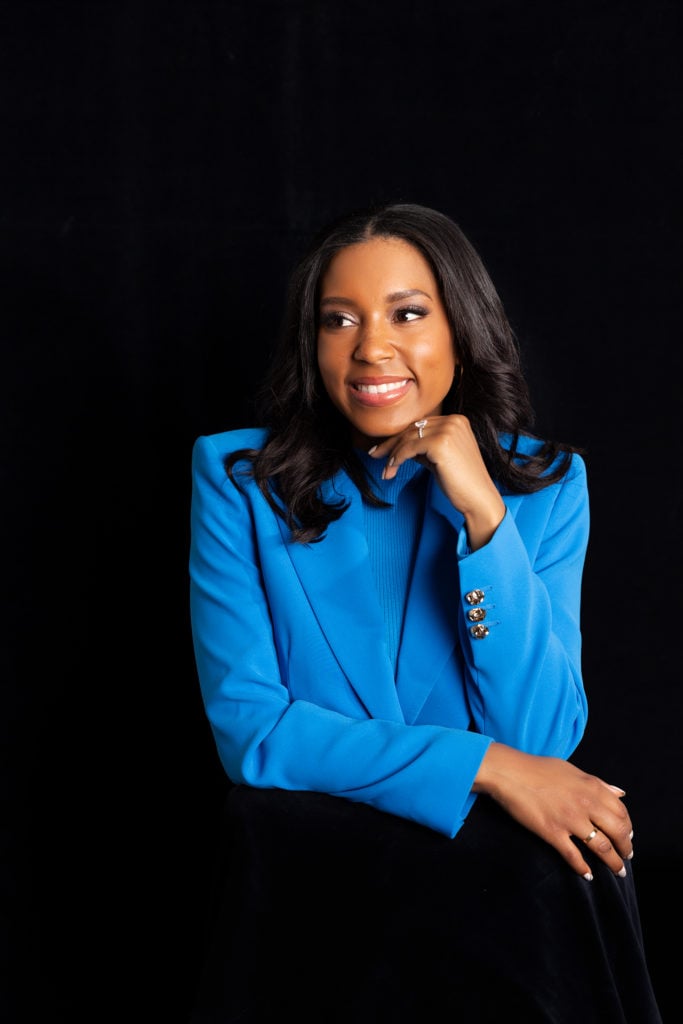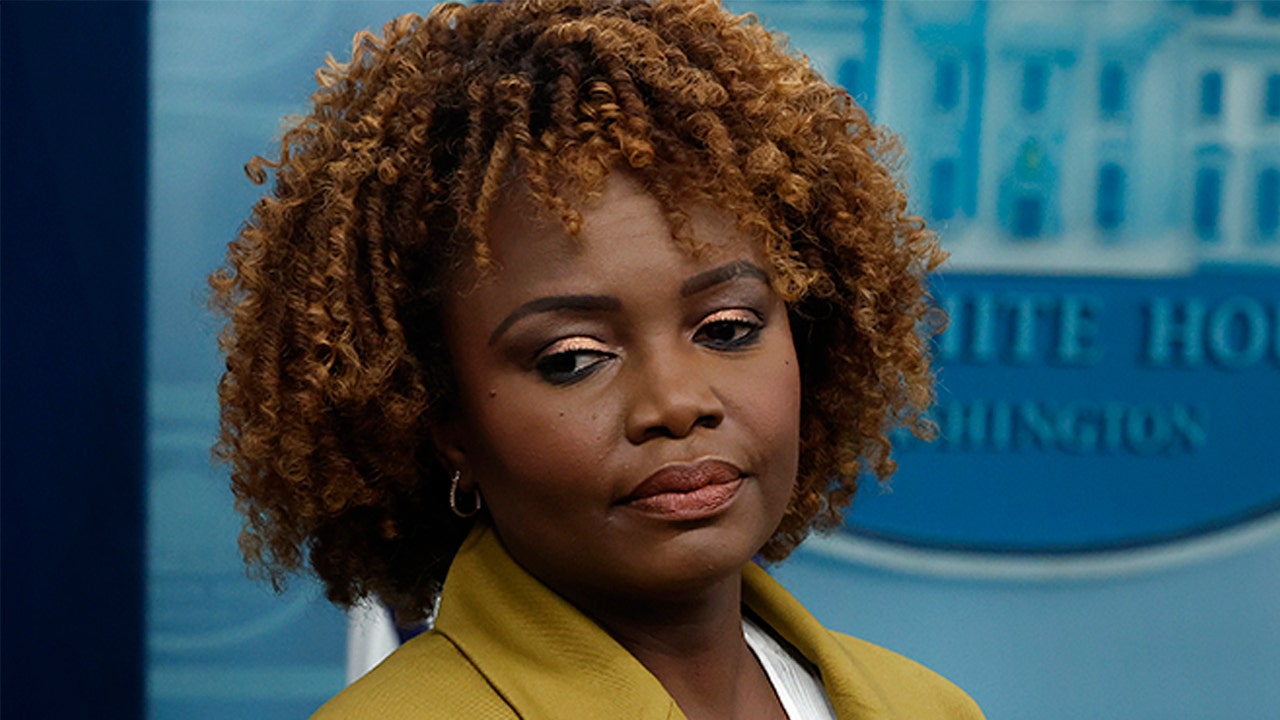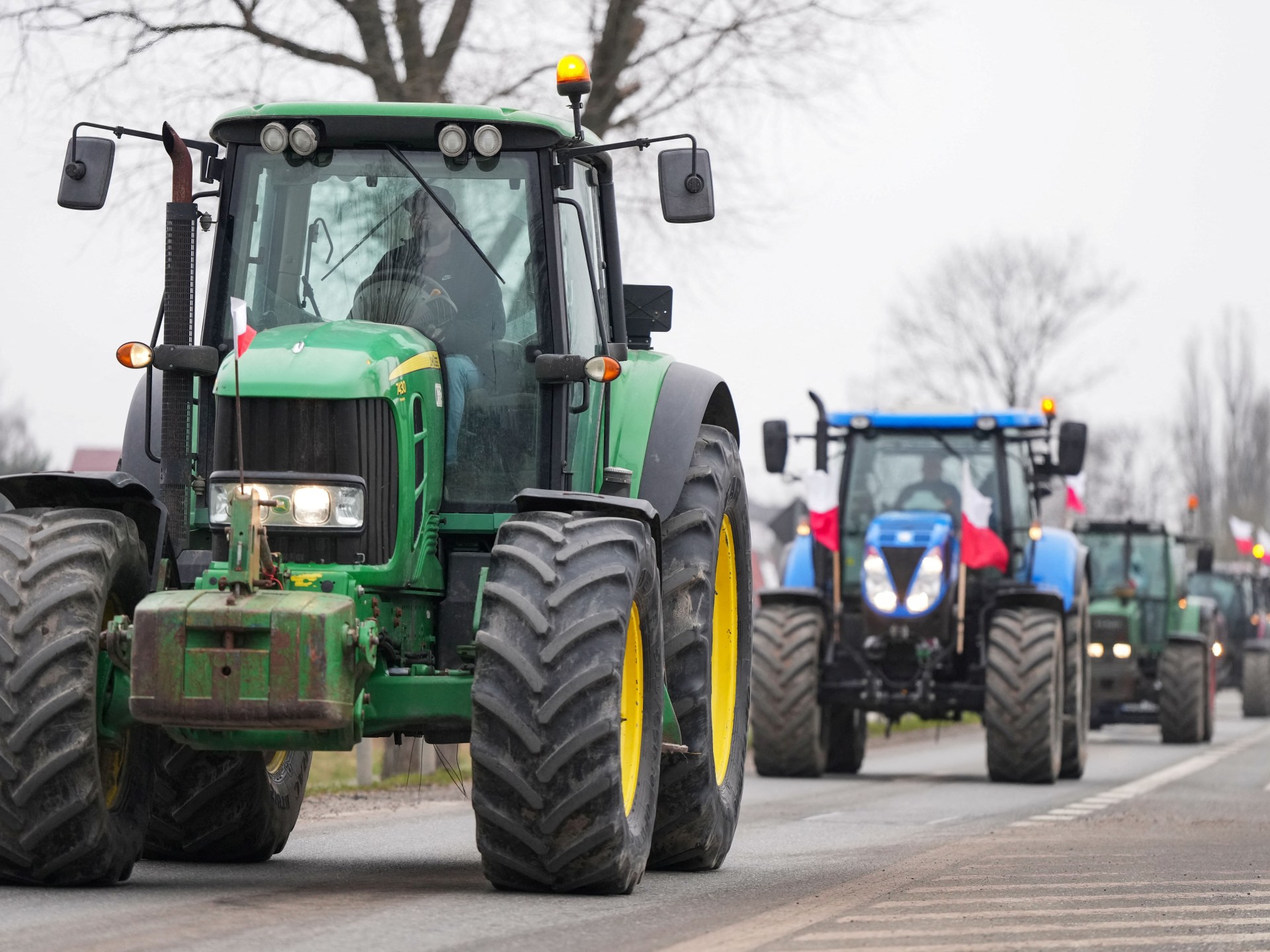Bob Graham, a consensus-building moderate Democrat who as a two-term Florida governor and a three-term U.S. senator became one of the most popular politicians in the state’s history and then one of the Senate’s most ardent opponents of the Iraq War, died April 16 at the age of 87.
Washington
Bob Graham, former Florida governor and U.S. senator, dies at 87

Mr. Graham retired from the Senate in 2005 after nearly four decades in public office. Apart from a short-lived campaign for the Democratic presidential nomination in 2004, he never failed in a run for elected office. He was also among the relatively few (five) Democrats elected governor of Florida in about as many decades, as the long-dominant state party lost its grip on what had become a volatile swing state trending to the right.
Mr. Graham, whose half brother Philip, sister-in-law Katharine and nephew Donald were publishers of The Washington Post, made an early fortune in real estate development, helping to turn his father’s dairy and cattle farm into a planned suburban community eventually called Miami Lakes. He made millions of dollars through real estate investments while pursuing a political career. He won a seat in the Florida House in 1966 and served for much of the 1970s in the state Senate.
His father, also a state legislator, had lost the Democratic primary for governor in 1944, a disappointment that Mr. Graham said fueled his interest in politics. With Gov. Reubin Askew (D) term-limited in 1978, Mr. Graham won a crowded Democratic primary to succeed him and then trounced his Republican opponent, Jack Eckerd, of the Eckerd drugstore empire, in the general election.
Mr. Graham had little statewide recognition going into the 1978 race and was perceived in some circles as a rich liberal from South Florida. But his campaign got a boost from the “workday” strategy orchestrated by pioneering political consultant Robert Squier.
Long known as “D. Robert Graham,” he began going by “Bob,” and he was filmed working various jobs — waiting tables, laying bricks, paving roads, shoveling manure, packing citrus fruit, teaching inner-city students — around the state’s 67 counties.
What began as a campaign stunt became a regular feature of Mr. Graham’s governorship. From the outset, he emphasized that his “workdays” were not photo ops. He didn’t put on an apron or a pair of work boots for an hour and then leave. He stayed after the camera crews departed and worked a full day, getting to know his constituents and leaving an indelible impression on Floridians of all political persuasions.
“I took away a learning of not only how people earn their living but how they live their lives,” he later told the Orlando Sentinel.
In Tallahassee, the state capital, he spearheaded ambitious environmental efforts, including the 1983 Save Our Everglades campaign, which helped rescue the state’s most famous natural resource from development and ecological deterioration.
During Mr. Graham’s first term, Florida struggled with a massive influx of refugees from Cuba and Haiti, and it took years to secure federal aid for their welfare and resettlement. Meanwhile, the state was beset by rising crime, including rampant drug smuggling, and the Liberty City section of Miami was racked by riots in 1980 after an all-White jury acquitted police officers who fatally beat a Black insurance agent during a traffic stop.
As opponents of his 1982 reelection campaign accused him of being “soft on crime,” Mr. Graham played up his support for the death penalty. The U.S. Supreme Court had ended an effective moratorium on capital punishment in 1976, and Mr. Graham sent John Spenkelink, a convicted murderer, to the electric chair in May 1979. It was the first execution in Florida in more than a decade. With broad popular support, he signed 16 death warrants as governor.
Mr. Graham coasted to reelection and won a U.S. Senate seat in 1986 by defeating a one-term conservative Republican incumbent, Paula Hawkins. In Washington, he was less known for specific legislation than for his ability to work across the aisle on bills affecting environmental and education programs, health care for the elderly and infirm, and efforts to fight drug crime.
“What I think I’m best at is bringing people together around an honorable and reasonable position,” Mr. Graham told the Tampa Tribune in 1998. “My approach to getting things done in the Senate is that you start at the 50-yard line and you begin to build out in each direction until you get a majority. Very few things happen, get accomplished, when you start in the end zone.”
Mr. Graham was floated repeatedly as a prospective vice-presidential candidate but never got the nod. Part of the problem, according to many political observers, was his lack of charisma. He was mocked for keeping notebooks in which he recorded the events of his day in minute detail. One entry read: “8:45-9:35 — Kitchen, family room. Eat breakfast, branola cereal with peach.”
The Post once described him as a “sober, conscientious, unfailingly courteous grandfather who couldn’t light up a room with a barrel of Iraqi crude and a Zippo.”
His public persona altered noticeably after the al-Qaeda terrorist attacks of Sept. 11, 2001, which happened while he was chairman of the Senate Intelligence Committee. Mr. Graham was among a handful of senators who became outspoken opponents of an invasion of Iraq, which President George W. Bush had proposed, ostensibly on the grounds that Saddam Hussein’s tyrannical regime was hiding weapons of mass destruction.
From the Senate floor in October 2002, five months before the U.S.-led invasion, Mr. Graham argued with uncharacteristic fervor that an attack on Iraq would distract from the pursuit of terrorist groups, which he said represented a greater threat to the United States than the one posed by Saddam Hussein. He also warned that an invasion might well provoke more terrorist strikes.
“We are not talking about a threat 90 days from now!” he roared with startling emotion. “We are not talking about a threat that may come a year from now if nuclear material is made available! I am talking about a threat that could happen this afternoon! … If you believe that the American people are not going to be at additional threat, then, frankly, my friends — to use a blunt term — blood is going to be on your hands.”
Mr. Graham and Rep. Porter Goss (R-Fla.), who chaired the House Intelligence Committee and later served as CIA director, spent 10 months leading joint oversight hearings into intelligence failures related to 9/11.
Released in 2003, their report called for an overhaul of intelligence gathering, including the dismantling of barriers between intelligence agencies. Their work, however, was largely overshadowed by the independent 9/11 Commission, which offered similar recommendations.
The same year, Mr. Graham launched a bid for the Democratic presidential nomination, contending that Bush had diverted resources and attention from the fight against terrorism to Iraq’s supposed weapons of mass destruction, which were never found.
“My life has been a progression, with a run for president being a logical conclusion,” he told The Post at the time. “What I had lacked before September 11 was the ingredient of passion. Now I have the passion.” But he attracted little support and dropped out before the primaries.
As a senator, Mr. Graham spent so much time in his home state that he never managed to create a dynamic national persona, observed Tom Fiedler, a former executive editor of the Miami Herald who as a reporter had covered much of Mr. Graham’s early career. “He was never able to do nationally what he had done in Florida,” Fiedler said. “He was always going to be the senator from Florida. That is a negative when you run for president.”
Daniel Robert Graham was born in Coral Gables, Fla., on Nov. 9, 1936, and grew up in a coral rock home in Pennsuco, near the Everglades in Dade County (now Miami-Dade County). His father, Ernest “Cap” Graham, was a gruff, demanding dairy and cattle farmer, and his mother, the former Hilda Simmons, was a schoolteacher. Cap Graham’s first wife died and left him with two sons, Philip and William, and a daughter, Mary.
Bob Graham worked for his father. He drove tractors, milked cows and showed prize Holsteins in the 4-H Club. At 16, he was named the county’s “best all ’round teenage boy” by the Miami Herald. The newspaper noted his skill as a debater at Miami Senior High School, his leadership in student government, and his talent for raising and breeding of Angus cattle, which he described as his future occupation.
However, his older half brother Philip, a Harvard Law School graduate 21 years Bob Graham’s senior, urged him to pursue other ambitions. At the time, Philip Graham was a Washington power broker who had become publisher of The Post in 1946, six years after marrying Katharine Meyer, whose father, financier Eugene Meyer, owned the newspaper. Before he died by suicide in 1963, Phil Graham mentored his younger brother, encouraging him to seek a law degree at Harvard and introducing him to members of Washington’s political elite.
“I felt as if my father had passed away,” Bob Graham later told the Orlando Sentinel, speaking of Phil Graham’s death. He graduated from the University of Florida in 1959 and, as his half brother had advised, from Harvard Law School in 1962.
In 1959, he married Adele Khoury, a classmate at the University of Florida. They had four daughters, Gwendolyn, Glynn, Arva and Kendall. Gwendolyn Graham (D-Fla.) served in the U.S. House of Representatives from 2015 to 2017. She ran unsuccessfully for her party’s nomination for governor in 2018. A complete list of survivors was not immediately available.
After his presidential run, Mr. Graham created the Bob Graham Center for Public Service at the University of Florida. “My attitude to life is you’re always looking forward,” he told the Orlando Sentinel. “I appreciated and very much enjoyed my political life. But I’ve made the mental transition to the future.”

Washington
‘I like to move it’: Zebras escape trailer, gallop on Washington highway: Watch video
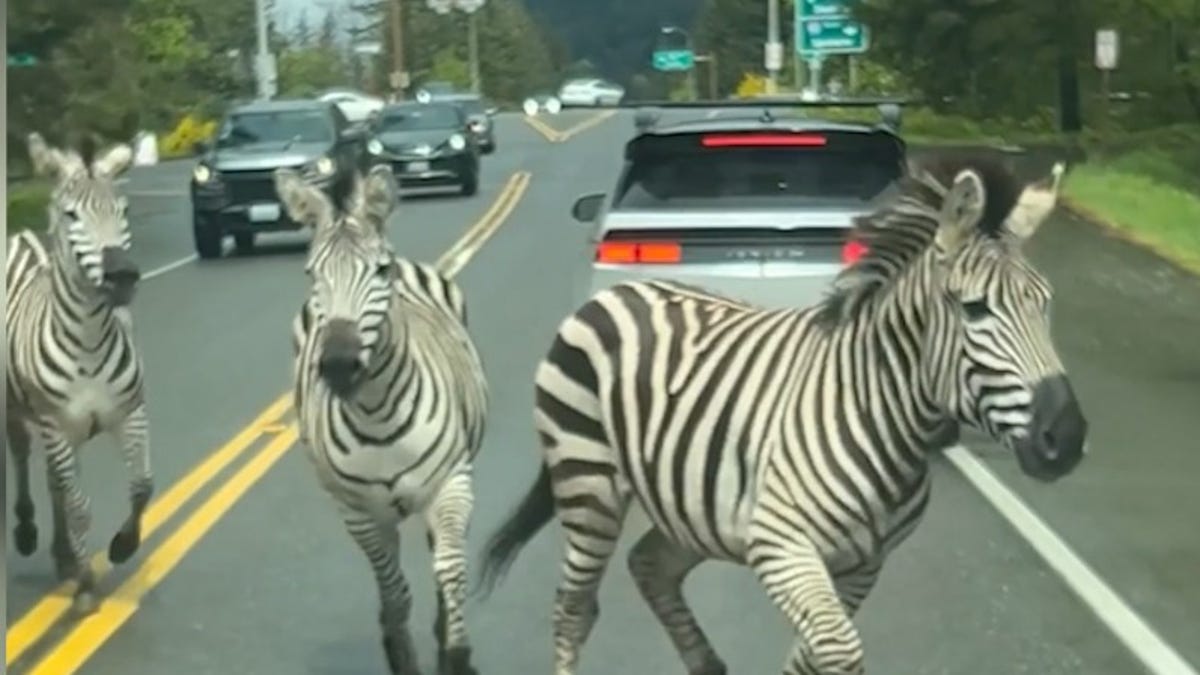
“No people were injured in the incident, and the three animals that were re-captured seem to be in good condition as well with no injuries.”
Drivers in Washington state were in for a surprise when they spotted a group of zebras, possibly inspired their friend Marty from “Madagascar,” galloping on the highway.
Washington State Patrol, in an email to USA TODAY, said that four zebras were on their way to Montana, when the driver of their trailer stopped off an exit to secure the trailer that had reportedly become unsecure. The four ‒ which included two adult mares, one stallion and one filly ‒ saw it as an opportunity and escaped from the trailer, running amok on the highway.
While officials and passersby were able to corral three of the zebras, a fourth, the stallion, continues to remain loose, the spokesperson said Monday morning.
No injuries reported
Cameron Satterfield, a spokesperson of the Regional Animal Services of King County, confirmed the same, adding that the three zebras who were corralled were returned to their owner, while the fourth remains at large.
Satterfield said that a “nearby good Samaritan with a horse pasture was able to help corral the zebras.”
“The zebras’ owner was able to bring their trailer to the pasture to pick up the three that were captured and make sure they were secured,” Satterfield said via email. “No people were injured in the incident, and the three animals that were re-captured seem to be in good condition as well with no injuries.”
An investigation report viewed by USA TODAY showed that the incident took place shortly before 1 p.m. Sunday. The owner of the four zebras, Kristine Keltgen was driving them from Winlock, Washington to Anaconda, Montana when she noticed the trailer’s “floor mat flapping and dragging.” As Keltgen stopped and opened the door of the trailer to adjust the mat, the zebras rushed out of the trailer and onto the roadway.
Video footage from the incident, captured by passersby, shows the zebras trotting on the highway among cars and munching on grass before making their way to the backyard of a house near the highway.
Zebras run wild along Washington state highway
Video captured the moments when four zebras were seen running though traffic in Washington state.
‘They’re in my yard’
Whitney Blomquist, who lives at the house, where the zebras wound up, told KOLOTV that she was shocked to see the zebras in her backyard.
“I called someone and was like, ‘Um, so I found the missing zebras. They’re in my yard,” Blomquist said. “Uh, you know, not sure what to do.’”
Blomquist told KOMO News that her security cameras have caught bears multiple times, but spotting the zebras was a first.
“I’ve had plenty of bears in my yard, but this was a new one, for sure,” Blomquist said.
One of the drivers on the highway Dan Barnett told KOLO TV that several cars on the off-ramp pulled over by the guardrail to contain the zebras and prevent them from escaping onto the interstate where they could be hit by speeding vehicles.
Authorities have requested anyone who spots the 4th zebra to call RASKC at 206-296-7387 or law enforcement at 911. Meanwhile, the other 3 continue to be transported back to Montana, according to the investigation report.
Saman Shafiq is a trending news reporter for USA TODAY. Reach her at sshafiq@gannett.com and follow her on X @saman_shafiq7.
Washington
Meet the 2024 Washington Women in Journalism Award Winners

Print Journalism
Carol Leonnig
The Washington Post
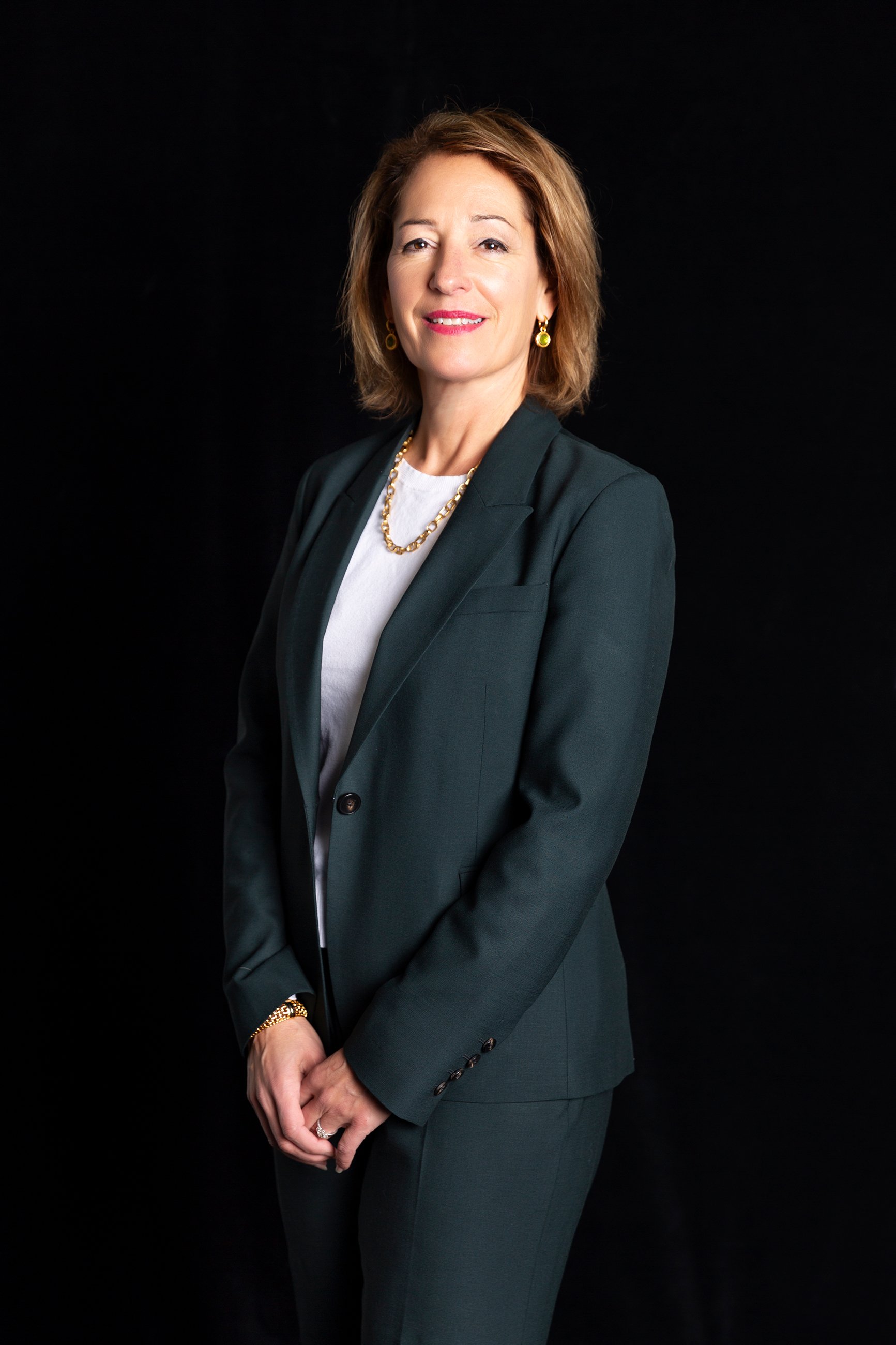
Carol Leonnig has spent much of her career reporting on local, state, and federal governments. Her hard-hitting investigations into the White House and federal agencies have earned her or teams she worked on four Pulitzer Prizes. At the Washington Post since 2000, she’s also an on-air contributor to NBC News and MSNBC and the author or coauthor of three New York Times bestsellers, including Zero Fail: The Rise and Fall of the Secret Service.
Where she grew up: Upper Marlboro.
First byline: “When I was a freshman, I got drafted by the editor of [the Bryn Mawr–Haverford College News] to report on a sledding accident involving students behind our dorm. She assigned me to go to the campus security office and look through their paper logs of how they responded to the accident, because there was a huge delay in getting emergency personnel to the site. I was able to piece together what caused the delay, and I was hooked.”
First journalism job: “In my senior year, I wrote some freelance pieces for the Philadelphia Inquirer. I ended up working there after college.”
First big story: “At the Charlotte Observer, I reported that the governor had overwritten state officials and career public servants’ recommendations to replace bridges [that were at risk of falling down] to get a big, new $8 million bridge built to help his neighbors in a rural community more quickly get from point A to point B. It was on the front page. We found out that the FBI was investigating the governor, and he held a press conference the next day and apologized.”
Hardest story she’s ever done: “Some of the hardest are the ones with people who don’t have boldface names. They are going through incredible trauma, like a mass shooting. The greatest honor that can be bestowed on us is to be entrusted to bring their experiences to a larger readership.”
Hardest part of her job: “Keeping your wits about you when you are being attacked in a very vicious way. The division in our country is so brutal in its attacks on journalists who report things that are factually true but that people don’t want to hear.”
Best journalism advice she’s received: “In the heat of the moment, in this competitive field, don’t let competition drive your decision. Stick to checking and rechecking every fact. No one will remember who published a minor story five minutes faster. Everyone will remember a mistake made in the rush of competition.”
Broadcast Journalism
Back to Top
Rachel Scott
ABC News
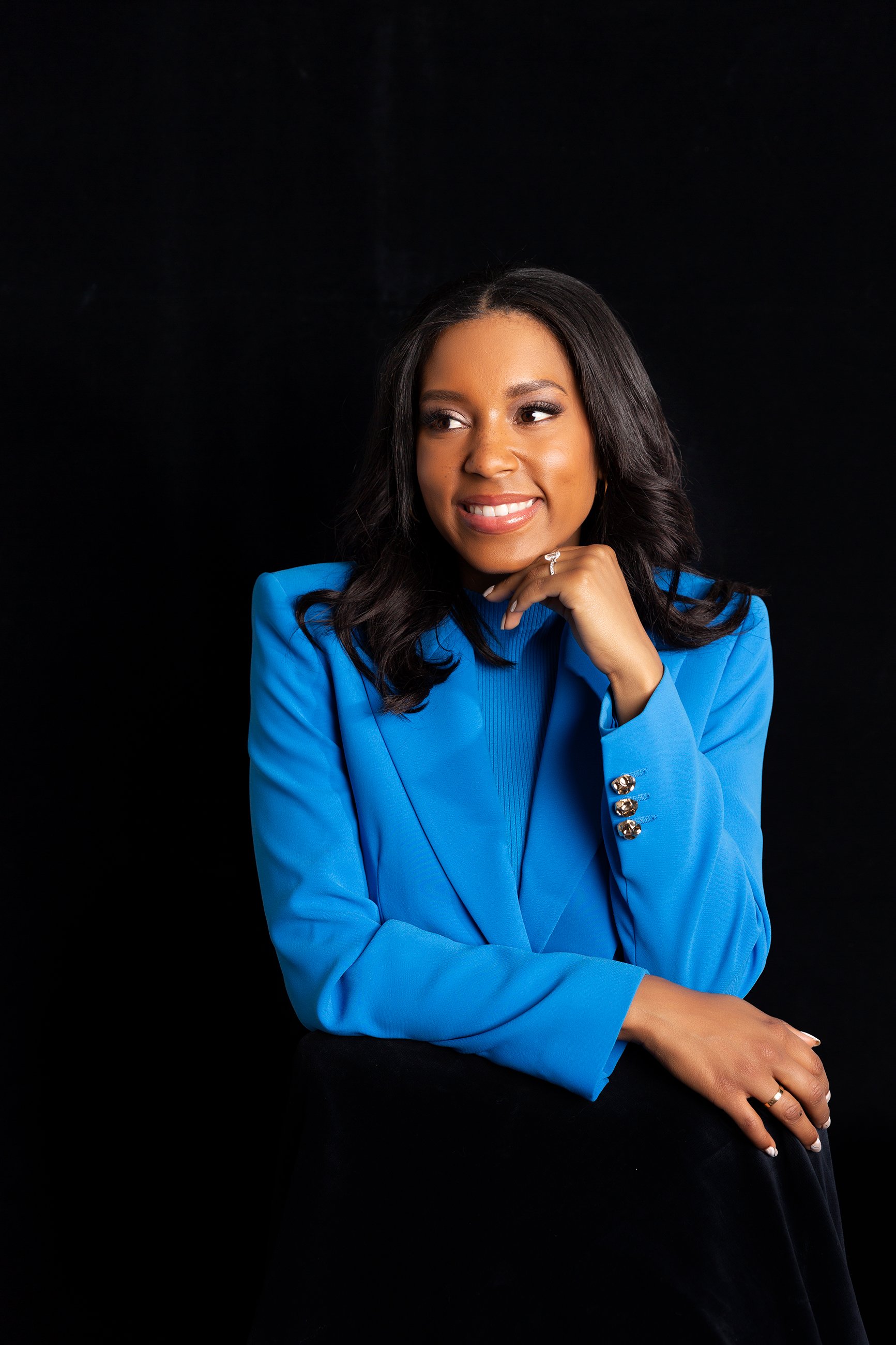

When Rachel Scott started reporting on Capitol Hill for ABC News in 2021, she couldn’t have predicted what she’d be covering her first day–January 6. The job has kept her on her toes ever since: taking her to Geneva, where she pressed Vladimir Putin on human rights; to Texas, where her coverage on the abortion ban earned her a Peabody Award; and to offices all over Capitol Hill.
Where she grew up: Diamond Bar, California.
First journalism job: Production associate for ABC News Live.
What drew her to journalism: “It wasn’t until I had an internship at the White House in 2012 that I discovered my passion for political journalism. I had the opportunity to sit in on several interviews that President Barack Obama did with Diane Sawyer and Barbara Walters, and it was in those rooms I realized that I wanted to be the one asking the tough questions on behalf of the American people.”
On covering January 6: “I was assigned to be outside of the Capitol for what was described as a Trump rally. I remember when things took a crazy turn. George Stephanopoulos asked me to describe what was going on, and what I described was chaos as rioters started to storm the Capitol. I reported outside for hours, stretching into the very late evening.”
Work she’s proudest of: “I traveled to Geneva for President Biden’s high-stakes meeting with Vladimir Putin, and we found out the day before that President Biden and Putin would be holding separate press conferences. I entered [Putin’s] press conference not knowing if he’d call on an American journalist. But he did. When I was called on, I raised the case of Alexei Navalny. I asked President Putin why all of his political prisoners were either dead, in prison, or poisoned. I asked what he was so afraid of. Coming back to my hotel that night, there were students gathered below the balcony of the hotel. They noticed me and started shouting, ‘Freedom of the press!’ In that moment, I understood the gravity of the questions we ask and how much it matters.”
One female journalist she admires: “Diane Sawyer—without question. When I was a USC student, Diane Sawyer came and spoke to journalism students. She told us, ‘Journalism is the business of changing the world.’ I have never forgotten it. When I came to ABC and started covering reproductive rights, Diane reached out to partner on a special. To reach out and partner with a younger journalist speaks volumes to what she has done for women in this industry.”
Lifetime Achievement
Back to Top
Kara Swisher
Vox Media/Podcaster
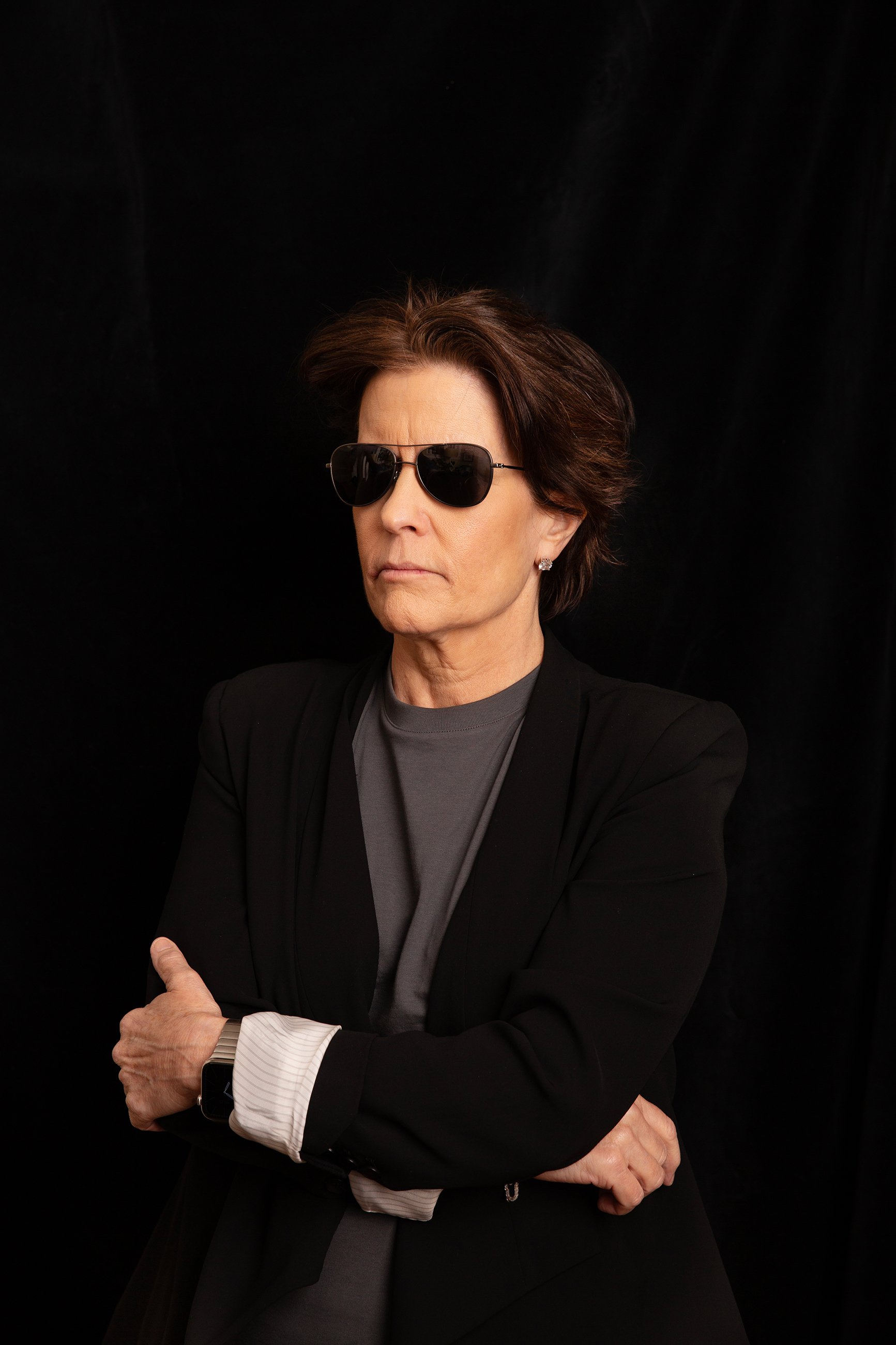

One of the earliest reporters on the internet beat, Kara Swisher has interviewed nearly every influential innovator and entrepreneur in the tech world. Between her commentary on CNN and her hit podcasts, On With Kara Swisher and Pivot, she has a knack for catching the latest scoops on the fast-moving industry. In her recent bestselling memoir, Burn Book: A Tech Love Story, Swisher gives an insider perspective into Silicon Valley’s titans and the impact of their innovations on our world.
Where she grew up: “A lot of places—Long Island and Princeton, New Jersey, principally.”
First byline: “I wrote columns at the Hoya at Georgetown University. I just wrote about campus life and things that affected students.”
First journalism job: “I started writing similar stories for the Washington Post. I was their stringer from the campus.”
First big story: “There was a family in Washington who was one of the wealthiest—they owned a string of retail stores. I wrote about the breakup of the family. Herbert Haft and Robert Haft—they were father and son, and they had a war. It was sort of like King Lear.”
What drew her to journalism: “I’m a curious person, and I like asking questions. I’m a good writer. I wasn’t good at other things. I wanted to be an architect, and I wasn’t good at that.”
One hard thing about her job: “Reporters play a really important part in society, and the current attacks on them are depressing and stupid.”
Best journalism advice she’s received: “Walt Mossberg, who I dedicated my book to, always was like, ‘Just go and find the truth and ask direct questions.’ It’s not very complicated, but I think it’s really important to do what you do with integrity and intelligence, as well as try to be interesting and be interested at the same time.”
A piece of advice she’d share to budding journalists: “Just work hard and ask good questions. You have to know what you’re talking about. You have to be accurate. You have to be prepared. Constantly assess what you need to improve on.”
What she’d like to see change to make the journalism industry better for women: “Hire the most diverse groups of people. I mean not just race and gender but backgrounds and political affiliation. I think it’s better to get different perspectives.”
Star to Watch
Back to Top
Meridith McGraw
Politico
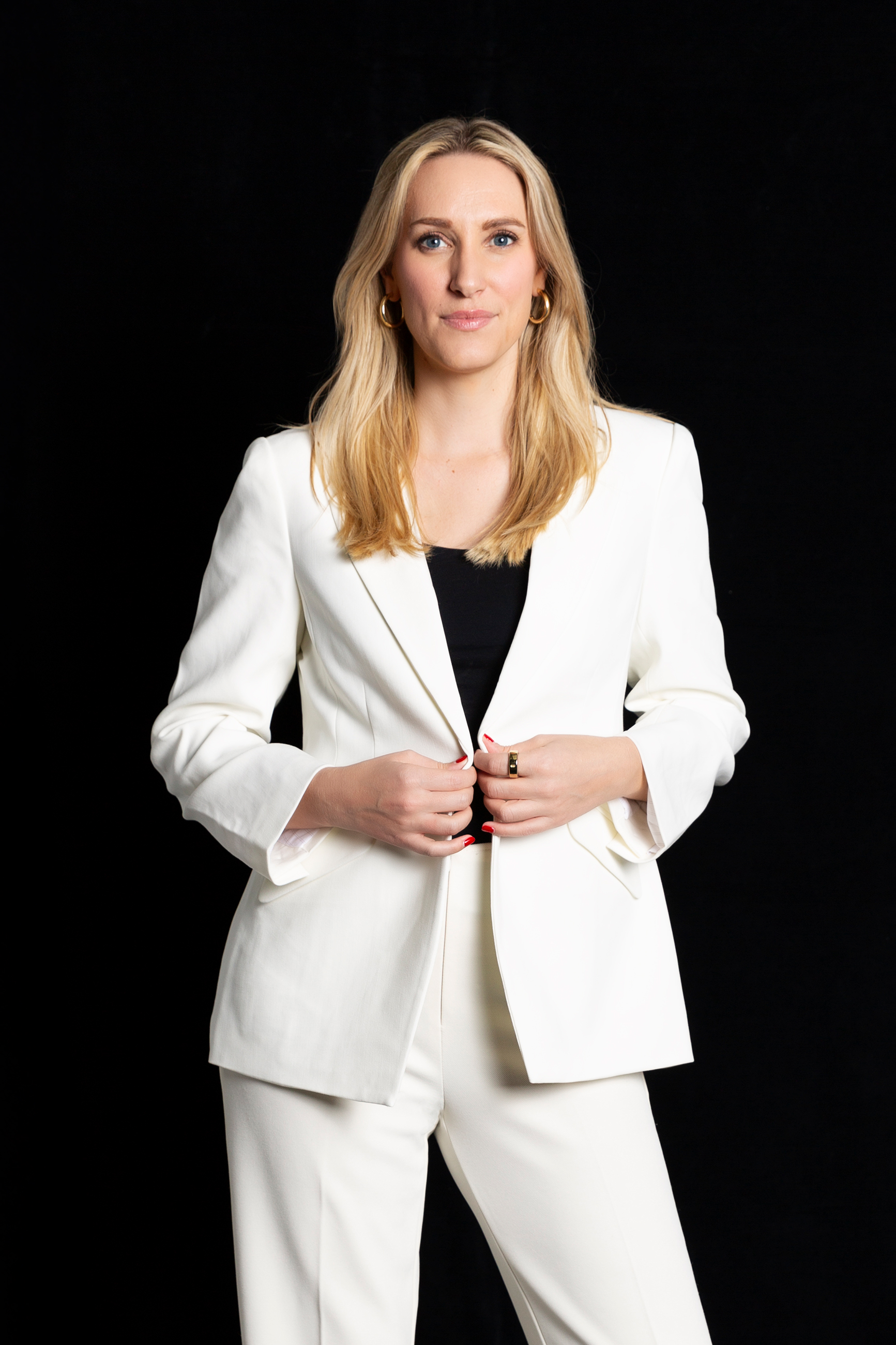

It would be an understatement to say that 2024 has been–and will continue to be–a whirlwind for Meridith McGraw. As Politico’s national political correspondent, she’s in charge of covering all things related to Donald Trump, the 2024 election, and Republican politics. Prior to joining Politico in 2019, she covered the White House and Capitol Hill for ABC News.
Where she grew up: Vienna, West Virginia.
What drew her to journalism: “I love to write. I’m interested in politics. And I grew up with parents who encouraged debate and conversation around the dinner table on what was going on in the world.”
First journalism job: “The Frank Reynolds Fellowship at ABC News. I went to Columbia Journalism School and had my eye on that internship from day one. I really wanted to come to Washington.”
First byline: “A very short story on the National Zoo’s new baby panda, which anybody in DC knows is a big deal.”
Hardest story she’s ever done: “It’s hard to pinpoint one story. [My first year at Politico] was such a challenging time. It was during the pandemic, and I was on the White House team. Nobody knew what was going on in terms of Covid. The George Floyd protests were happening. It was a particularly important and challenging time to be a reporter in DC.”
Best journalism advice she’s received: “Try to zig when other people zag. Think of unexpected or uncovered angles to the stories that everybody’s reading.”
Most challenging aspect of covering Trump: “At times, it feels hard to keep up with the volume of news. That’s why it’s important to cut through the noise and help people discern the most important things they need to know.”
How she stays sane covering politics in 2024: “I’m really lucky to have great friends and family, and an adorable dog [Daisy, a basset hound], but a big part of it is understanding the historic importance of the moment we’re in.”
What she’d like to see change in the journalism industry to make it better for women: “Pay equity continues to be something we need to see [improve].”
Favorite part of the job: “I’m happy not being the smartest person in the room and getting to learn from other people. I love that this job allows me to call up lawmakers, expert thinkers, [and] everyday people I wouldn’t normally encounter.”
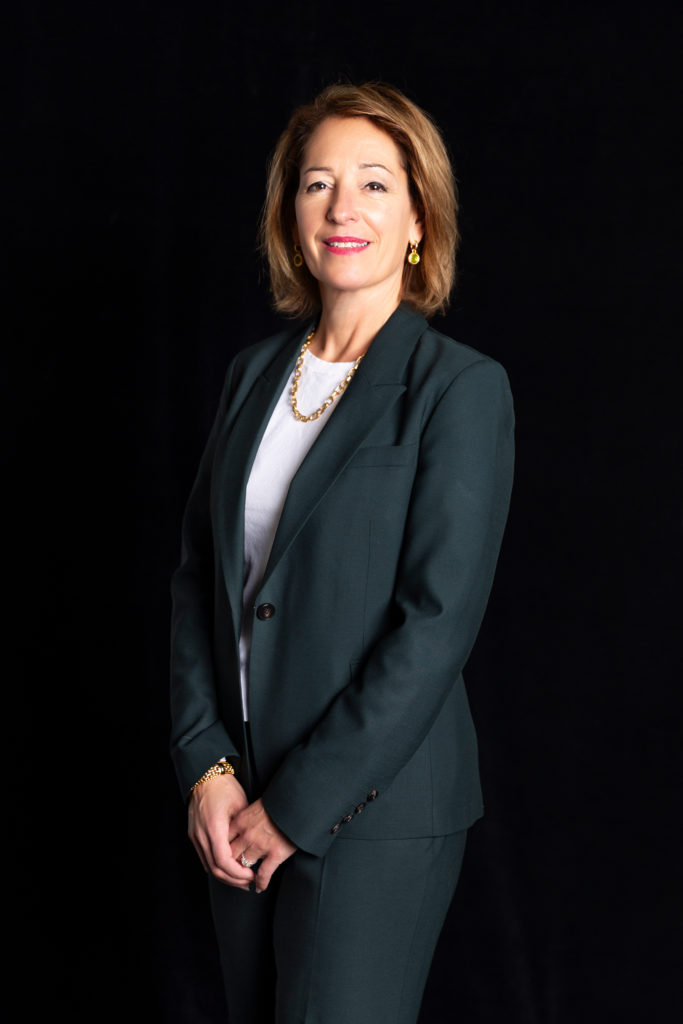

Print Journalism
Back to Top
Carol Leonnig
The Washington Post
Carol Leonnig has spent much of her career reporting on local, state, and federal governments. Her hard-hitting investigations into the White House and federal agencies have earned her or teams she worked on four Pulitzer Prizes. At the Washington Post since 2000, she’s also an on-air contributor to NBC News and MSNBC and the author or coauthor of three New York Times bestsellers, including Zero Fail: The Rise and Fall of the Secret Service.
Where she grew up: Upper Marlboro.
First byline: “When I was a freshman, I got drafted by the editor of [the Bryn Mawr–Haverford College News] to report on a sledding accident involving students behind our dorm. She assigned me to go to the campus security office and look through their paper logs of how they responded to the accident, because there was a huge delay in getting emergency personnel to the site. I was able to piece together what caused the delay, and I was hooked.”
First journalism job: “In my senior year, I wrote some freelance pieces for the Philadelphia Inquirer. I ended up working there after college.”
First big story: “At the Charlotte Observer, I reported that the governor had overwritten state officials and career public servants’ recommendations to replace bridges [that were at risk of falling down] to get a big, new $8 million bridge built to help his neighbors in a rural community more quickly get from point A to point B. It was on the front page. We found out that the FBI was investigating the governor, and he held a press conference the next day and apologized.”
Hardest story she’s ever done: “Some of the hardest are the ones with people who don’t have boldface names. They are going through incredible trauma, like a mass shooting. The greatest honor that can be bestowed on us is to be entrusted to bring their experiences to a larger readership.”
Hardest part of her job: “Keeping your wits about you when you are being attacked in a very vicious way. The division in our country is so brutal in its attacks on journalists who report things that are factually true but that people don’t want to hear.”
Best journalism advice she’s received: “In the heat of the moment, in this competitive field, don’t let competition drive your decision. Stick to checking and rechecking every fact. No one will remember who published a minor story five minutes faster. Everyone will remember a mistake made in the rush of competition.”
Broadcast Journalism
Back to Top
Rachel Scott
ABC News
When Rachel Scott started reporting on Capitol Hill for ABC News in 2021, she couldn’t have predicted what she’d be covering her first day–January 6. The job has kept her on her toes ever since: taking her to Geneva, where she pressed Vladimir Putin on human rights; to Texas, where her coverage on the abortion ban earned her a Peabody Award; and to offices all over Capitol Hill.
Where she grew up: Diamond Bar, California.
First journalism job: Production associate for ABC News Live.
What drew her to journalism: “It wasn’t until I had an internship at the White House in 2012 that I discovered my passion for political journalism. I had the opportunity to sit in on several interviews that President Barack Obama did with Diane Sawyer and Barbara Walters, and it was in those rooms I realized that I wanted to be the one asking the tough questions on behalf of the American people.”
On covering January 6: “I was assigned to be outside of the Capitol for what was described as a Trump rally. I remember when things took a crazy turn. George Stephanopoulos asked me to describe what was going on, and what I described was chaos as rioters started to storm the Capitol. I reported outside for hours, stretching into the very late evening.”
Work she’s proudest of: “I traveled to Geneva for President Biden’s high-stakes meeting with Vladimir Putin, and we found out the day before that President Biden and Putin would be holding separate press conferences. I entered [Putin’s] press conference not knowing if he’d call on an American journalist. But he did. When I was called on, I raised the case of Alexei Navalny. I asked President Putin why all of his political prisoners were either dead, in prison, or poisoned. I asked what he was so afraid of. Coming back to my hotel that night, there were students gathered below the balcony of the hotel. They noticed me and started shouting, ‘Freedom of the press!’ In that moment, I understood the gravity of the questions we ask and how much it matters.”
One female journalist she admires: “Diane Sawyer—without question. When I was a USC student, Diane Sawyer came and spoke to journalism students. She told us, ‘Journalism is the business of changing the world.’ I have never forgotten it. When I came to ABC and started covering reproductive rights, Diane reached out to partner on a special. To reach out and partner with a younger journalist speaks volumes to what she has done for women in this industry.”
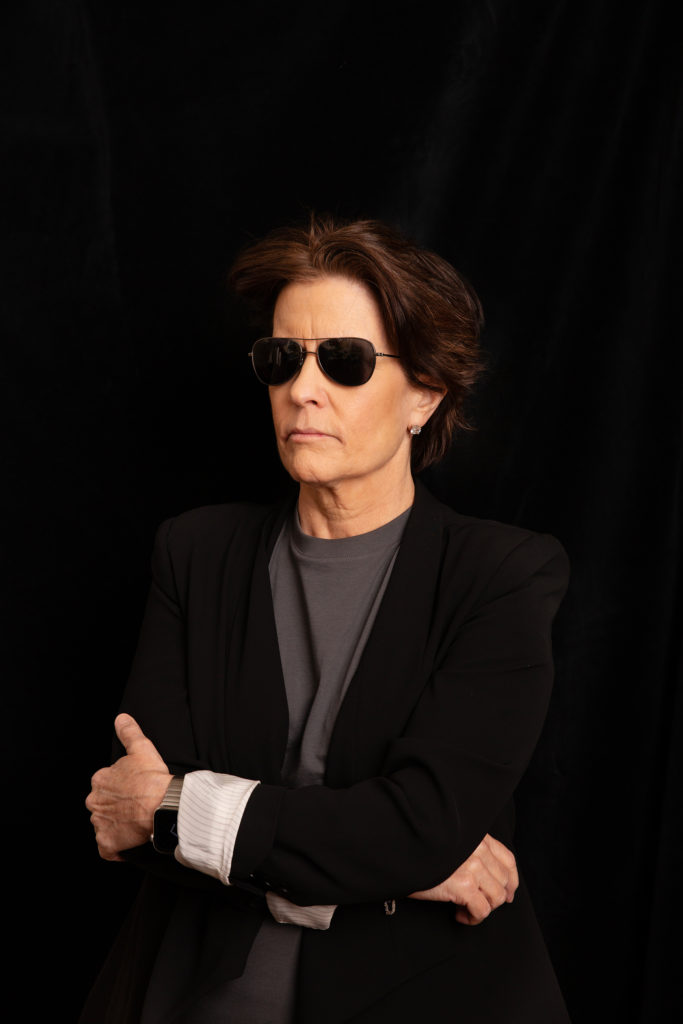

Lifetime Achievement
Back to Top
Kara Swisher
Vox Media/Podcaster
One of the earliest reporters on the internet beat, Kara Swisher has interviewed nearly every influential innovator and entrepreneur in the tech world. Between her commentary on CNN and her hit podcasts, On With Kara Swisher and Pivot, she has a knack for catching the latest scoops on the fast-moving industry. In her recent bestselling memoir, Burn Book: A Tech Love Story, Swisher gives an insider perspective into Silicon Valley’s titans and the impact of their innovations on our world.
Where she grew up: “A lot of places—Long Island and Princeton, New Jersey, principally.”
First byline: “I wrote columns at the Hoya at Georgetown University. I just wrote about campus life and things that affected students.”
First journalism job: “I started writing similar stories for the Washington Post. I was their stringer from the campus.”
First big story: “There was a family in Washington who was one of the wealthiest—they owned a string of retail stores. I wrote about the breakup of the family. Herbert Haft and Robert Haft—they were father and son, and they had a war. It was sort of like King Lear.”
What drew her to journalism: “I’m a curious person, and I like asking questions. I’m a good writer. I wasn’t good at other things. I wanted to be an architect, and I wasn’t good at that.”
One hard thing about her job: “Reporters play a really important part in society, and the current attacks on them are depressing and stupid.”
Best journalism advice she’s received: “Walt Mossberg, who I dedicated my book to, always was like, ‘Just go and find the truth and ask direct questions.’ It’s not very complicated, but I think it’s really important to do what you do with integrity and intelligence, as well as try to be interesting and be interested at the same time.”
A piece of advice she’d share to budding journalists: “Just work hard and ask good questions. You have to know what you’re talking about. You have to be accurate. You have to be prepared. Constantly assess what you need to improve on.”
What she’d like to see change to make the journalism industry better for women: “Hire the most diverse groups of people. I mean not just race and gender but backgrounds and political affiliation. I think it’s better to get different perspectives.”
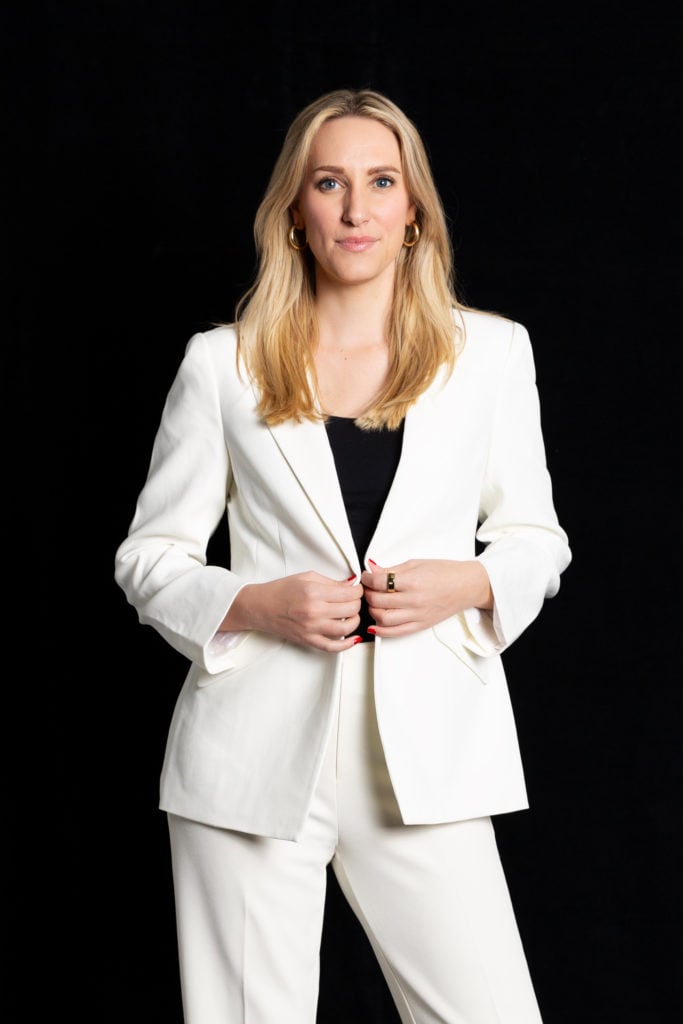

Star to Watch
Back to Top
Meridith McGraw
Politico
It would be an understatement to say that 2024 has been–and will continue to be–a whirlwind for Meridith McGraw. As Politico’s national political correspondent, she’s in charge of covering all things related to Donald Trump, the 2024 election, and Republican politics. Prior to joining Politico in 2019, she covered the White House and Capitol Hill for ABC News.
Where she grew up: Vienna, West Virginia.
What drew her to journalism: “I love to write. I’m interested in politics. And I grew up with parents who encouraged debate and conversation around the dinner table on what was going on in the world.”
First journalism job: “The Frank Reynolds Fellowship at ABC News. I went to Columbia Journalism School and had my eye on that internship from day one. I really wanted to come to Washington.”
First byline: “A very short story on the National Zoo’s new baby panda, which anybody in DC knows is a big deal.”
Hardest story she’s ever done: “It’s hard to pinpoint one story. [My first year at Politico] was such a challenging time. It was during the pandemic, and I was on the White House team. Nobody knew what was going on in terms of Covid. The George Floyd protests were happening. It was a particularly important and challenging time to be a reporter in DC.”
Best journalism advice she’s received: “Try to zig when other people zag. Think of unexpected or uncovered angles to the stories that everybody’s reading.”
Most challenging aspect of covering Trump: “At times, it feels hard to keep up with the volume of news. That’s why it’s important to cut through the noise and help people discern the most important things they need to know.”
How she stays sane covering politics in 2024: “I’m really lucky to have great friends and family, and an adorable dog [Daisy, a basset hound], but a big part of it is understanding the historic importance of the moment we’re in.”
What she’d like to see change in the journalism industry to make it better for women: “Pay equity continues to be something we need to see [improve].”
Favorite part of the job: “I’m happy not being the smartest person in the room and getting to learn from other people. I love that this job allows me to call up lawmakers, expert thinkers, [and] everyday people I wouldn’t normally encounter.”
Back to Top
Past Winners
2023
Jacqueline Alemany
The Washington Post
Gloria Borger
CNN
Asma Khalid
NPR
Kelly O’Donnell
NBC
2022
Kaitlan Collins
CNN
Kathleen Parker
The Washington Post
Martha Raddatz
ABC
Ayesha Rascoe
NPR
2021
Yamiche Alcindor
PBS
Karen Attiah
The Washington Post
Susan Glasser
The New Yorker
Norah O’Donnell
CBS
2020
Molly Ball
Time
Rita Braver
CBS
Anna Palmer
Politico
Kristen Welker
NBC
2019
Andrea Mitchell
NBC
Ashley Parker
The Washington Post
Abby Phillip
CNN
Amanda Terkel
HuffPost
2018
Amanda Bennett
Voice of America
Audie Cornish
NPR
Lynn Sweet
The Chicago Sun-Times
Amy Walter
The Cook Political Report
2017
Mary Katharine Ham
CNN
Mary Louise Kelly
NPR
Jane Mayer
The New Yorker
Cokie Roberts
NPR/ABC/PBS
2016
Dana Bash
CNN
Kathryn Lopez
National Review
Susan Page
USA Today
Carolyn Ryan
The New York Times
This article appears in the May 2024 issue of Washingtonian.
Washington
N.Y. must ban menthol cigarettes: Washington stalls so Albany must act

A year ago, to her credit, Gov. Hochul tried to have New York ban menthol flavored cigarettes, which cause disproportionate sickness and death in the Black population. But there was a heavy lobbying effort in Albany by the tobacco cartel cloaked under the guise of civil rights that a ban, as some other states have, would somehow harm the African-American community.
The lies worked, as did the argument that there was no need for New York to act because Washington was going to impose a national ban a few months down the road. So Hochul’s ban was set aside.
That promised national ban from the Food and Drug Administration and parent Department of Health and Human Services was expected last fall. But it didn’t happen and now it’s been pushed off again. Don’t expect anything before the November election. And who knows what will happen after that.
On Friday, HHS Secretary Xavier Becerra gave a statement that was as pathetically weak as it was short:
“This rule has garnered historic attention and the public comment period has yielded an immense amount of feedback, including from various elements of the civil rights and criminal justice movement. It’s clear that there are still more conversations to have, and that will take significantly more time.”
Compare that to what the same man said two years ago: “The proposed rules would help prevent children from becoming the next generation of smokers and help adult smokers quit. Additionally, the proposed rules represent an important step to advance health equity by significantly reducing tobacco-related health disparities.”
The “immense amount of feedback” Becerra now prattles about is from the tobacco lobbyists and their fronts. The secretary’s phrase of “more conversations” means more delay and more menthol tobacco sales with more sickness and more death. The death cartel keeps cashing in on the lungs and bodies of Black Americans.
The NAACP agrees with the American Cancer Society, which agrees with the American Heart Association, which agrees with the American Lung Association, which agrees with a united public health establishment and hospitals and physicians.
Joe Biden needs the votes of Black Americans this fall and there is plenty of speculation that political considerations were a factor in this public health matter. Yes, menthol cigarette use is largely centered in the Black community, however a ban won’t harm the community, but help it. The most important civil right is the right to live and menthol kills and it kills far more Black people.
How perverse to claim that harming the Black community is a civil right cause.
On Friday, the FDA did do something, however, in finalizing Guidance for Industry (GFI) #120: Veterinary Feed Directive Regulation Questions and Answers about the use of approved animal drugs intended for use in or on the feed of food-producing animals that require veterinary oversight. That’s important, but more important than a known killer preying on the Black community? A menthol ban would reduce the amount of smoking, saving lives.
Now that feds have succumbed to the smokescreen of Tobacco Row, it’s back to the states. The Legislature has more than a full month before they break for the year. Ban menthol tobacco in New York.
-

 News1 week ago
News1 week agoIs this fictitious civil war closer to reality than we think? : Consider This from NPR
-

 World1 week ago
World1 week agoShipping firms plead for UN help amid escalating Middle East conflict
-

 Politics1 week ago
Politics1 week agoICE chief says this foreign adversary isn’t taking back its illegal immigrants
-

 Politics1 week ago
Politics1 week ago'Nothing more backwards' than US funding Ukraine border security but not our own, conservatives say
-

 News1 week ago
News1 week agoThe San Francisco Zoo will receive a pair of pandas from China
-

 World1 week ago
World1 week agoTwo Mexican mayoral contenders found dead on same day
-

 World1 week ago
World1 week agoBrussels, my love? The EU single market is not sexy enough for voters
-

 Politics1 week ago
Politics1 week agoRepublican aims to break decades long Senate election losing streak in this blue state


